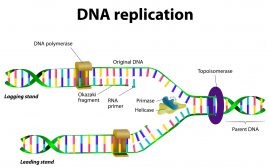Definition
noun
An ancient Greek theory stating that the body is composed of four basic humors such as black bile, yellow bile, phlegm, and blood that were used as a basis to determine the health of an individual. According to this theory, the four humors have to be in balance in order to be healthy. Otherwise, an excess or deficit on one of them results in disease or disability in the personality or physical health of an individual.
Supplement
This theory was related and likened to the theory of the earth having four elements such as earth, fire, water and air in which balance in these elements allow for human life.
Related to this theory is the theory of temperament. (see: temperament theory)
Word origin: from the Latin umore = fluid
Also called: humoral doctrine, humoralism, humorism.
Synonym: fluidism.
Dictionary > Humoral theory
You will also like...

ATP & ADP – Biological Energy
ATP is the energy source that is typically used by an organism in its daily activities. The name is based on its structu..

Non-Mendelian Inheritance
In this tutorial, find out more about certain types of inheritance that does not follow the Mendelian inheritance patter..

The Dinosaurs
Dinosaurs represented a major turn in the evolutionary development of organisms on Earth. The first dinosaurs were presu..

DNA Structure & DNA Replication
DNA is a double helix structure comprised of nucleotides. A nucleotide, in turn, is made up of phosphate molecule, deoxy..

Examples of Natural Selection
Darwin's Finches are an example of natural selection in action. They are an excellent example of the way species' gene p..

Biosecurity and Biocontrol
This lesson explores the impact of biosecurity threats, and why they need to be identified and managed. Examples to incl..

